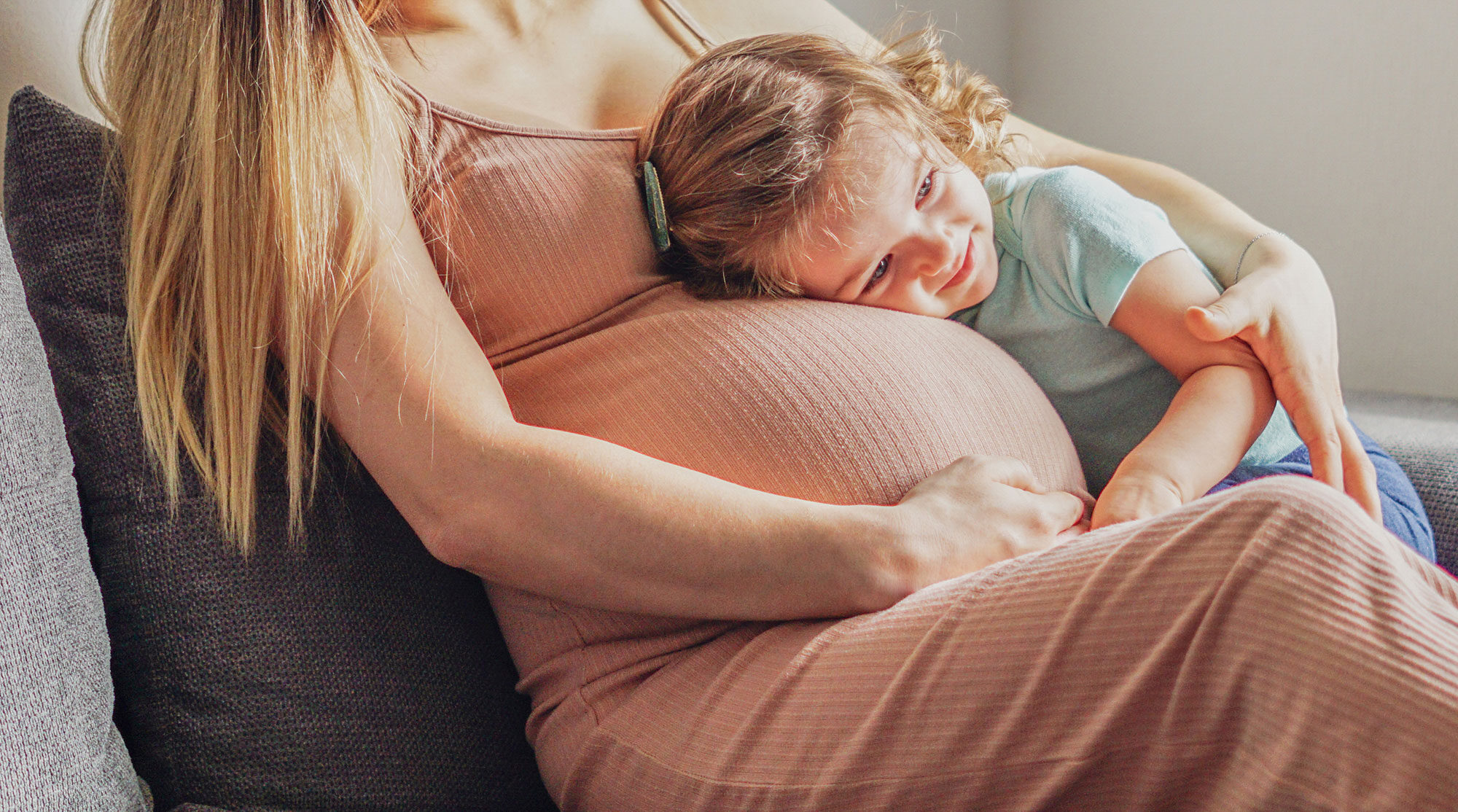Miscarriage – Why does it happen to me?
When parents lose their child through miscarriage, it is one of the most painful things that can happen to them. For couples who learn of...
Von: Anne Alexander

When parents lose their child through miscarriage, it is one of the most painful things that can happen to them. For couples who learn of the loss of their child, it is initially unimaginable how they can cope with the difficult path that lies ahead of them. Gynecologists estimate that at least one in five pregnancies ends in failure, and the number of unreported cases is probably higher. But even though so many women are affected, miscarriage is still a taboo subject today and is not really discussed either in private or in public.
When a couple holds a positive pregnancy test in their hands, silence often begins. But isn’t the joy so great that you would like to tell everyone right away? Doctors often advise waiting, however, because the risk of miscarriage is known to be greatest in the first twelve weeks. But life has already found its beginning and the couple loves the unborn from the beginning, makes plans, and prepares for a common future. Why should it be easier to lose your child before the 12th week of pregnancy than later? If a miscarriage occurs, most women and couples keep the heavy loss to themselves, withdraw further and further, feel lonely and empty. In their deep grief, they feel neither understood nor adequately cared for by their environment and doctors. For those affected, silence is often unbearable. Denying a miscarriage and keeping their grief to themselves often only makes it worse. We wish for more openness and exchange among each other! Many couples who finally speak in public about a miscarriage hear surprising confessions from people close to them who have experienced a similar experience. This gives strength, courage and hope, because you are not alone!
Background
80% of all miscarriages occur in the first 12 weeks of pregnancy and are called early miscarriages. The risk of losing the baby is greatest at the beginning of each pregnancy and decreases as the pregnancy progresses. The most common miscarriages occur up to the 4th/5th SSW. Here, medical experts assume a rate of up to 50%. In the past, women did not even know they were pregnant at this point. Today, pregnancies are often planned for a long time and women know very early that they are expecting a child. Thanks to sensitive modern technology, a heartbeat can now be detected on the ultrasound scanner as early as the sixth week. By then, at the latest, pregnant women form a close bond with the growing child. In the 6th to 8th week of gestation, the risk of miscarriage is reduced to about 18%, and from the 17th week of gestation, the risk of miscarriage drops to only 2-3%. If a miscarriage takes place after the 16th week of pregnancy, physicians speak of a late miscarriage. The fetus is usually not yet capable of surviving on its own before the end of the completed 22-24th SSW and with less than 500g outside the uterus.
Why me?
The reasons for early abortion up to the 12th week of gestation are usually serious chromosomal changes in the embryo, defective cell divisions, malformations, infections and much more. Weakness of the corpus luteum or immune reactions, i.e. rejection reactions of the maternal immune system against the tissue of the placenta, can also be causes for miscarriage. However, women are not well enough informed about the causes of miscarriage and blame themselves: “I wish I hadn’t gone jogging! I wish I hadn’t carried that heavy shopping bag! But: You are not to blame! The early abortion represents a “protective mechanism” of nature if the embryo would not have been viable. Pregnancy is a miracle of nature and a highly complex process.
What happens next?
In Germany, once embryonic death has been established in the early weeks of pregnancy, scraping is predominantly performed. This is a surgical procedure in which the tissue of the embryo, the placenta and uterine lining are removed. But there are other options as well: Speeding up the departure of the fetus with a drug that induces labor, or waiting for the body to reject the embryo on its own. In any case, you should seek information and advice from your gynecologist. The choice between these options, which could facilitate conscious farewell and grief in some cases, can be crucial for women. From the 16th SSW, the baby is usually born in the normal way. Even though cesarean section has become significantly safer today than in the past, it carries a higher risk for the mother than natural childbirth. The possible consequences for a new pregnancy and birth should also not be underestimated. Bringing the child into the world step by step by her own power with each contraction makes the farewell “tangible” for many mothers. This so-called “silent birth” and the early farewell to the child will remain unforgotten for the parents.
After a miscarriage, the woman experiences a rapid drop in hormones. This can further intensify the grief. In the days and weeks that follow, it is now especially important to take it easy until the body has recovered and the physical regression and healing is complete. In order to process the fateful experience, joint conversations with the partner about feelings, fears and worries are particularly important for the couple’s relationship now.
Places of mourning
Many parents often feel a close connection to the dead child for the rest of their lives. Consciously shaping the farewell can help to make the loss comprehensible and to take new courage. Couples can sometimes cope better with their pain if they have a place to mourn to which they can return at any time. Today, most states provide a right to burial for both early and late pregnancy losses, if the parents so desire. Farewell rituals and funeral ceremonies can be a comforting and profound experience. At the same time, they can help find new strength. Small mementos, such as ultrasound pictures or baby clothes that have already been purchased, can also help in coping with grief. Not all parents can or want to bury their child individually – for example, if they lost the child very early. Then it is usually possible to have it buried by the hospital.
You are not alone!
A miscarriage is a very emotionally stressful situation for the woman and the couple. The number of women who have experienced a miscarriage is high. However, this also offers the opportunity for an exchange of feelings and thoughts among women and parents who have experienced a similar situation. Many women find it helpful to exchange ideas with other affected women in self-help groups. Today, social networks can also bring women with similar fates together, often anonymously, to share experiences, to grieve and to remember.
For coping with grief, there are psychologists, independent self-help groups, and initiatives all over Germany for those who need support and help. Accept help! Midwives can also provide assistance in the event of pregnancy loss. In the event of a miscarriage before the 24th week of pregnancy, health insurance often covers care by a midwife. However, it takes time for the emotional wounds to heal. Those who cannot overcome grief or develop great fears of a new pregnancy should reach out for psychological help.
Helpful links:
- Initiative Regebogen “Glücklose Schwangerschaft e.V.” – www.initiative-regenbogen.de/
- Welche Regelungen jetzt gelten – Familienportal.de
- Beratung, Selbsthilfegruppen und Co. – www.Eltern.de





